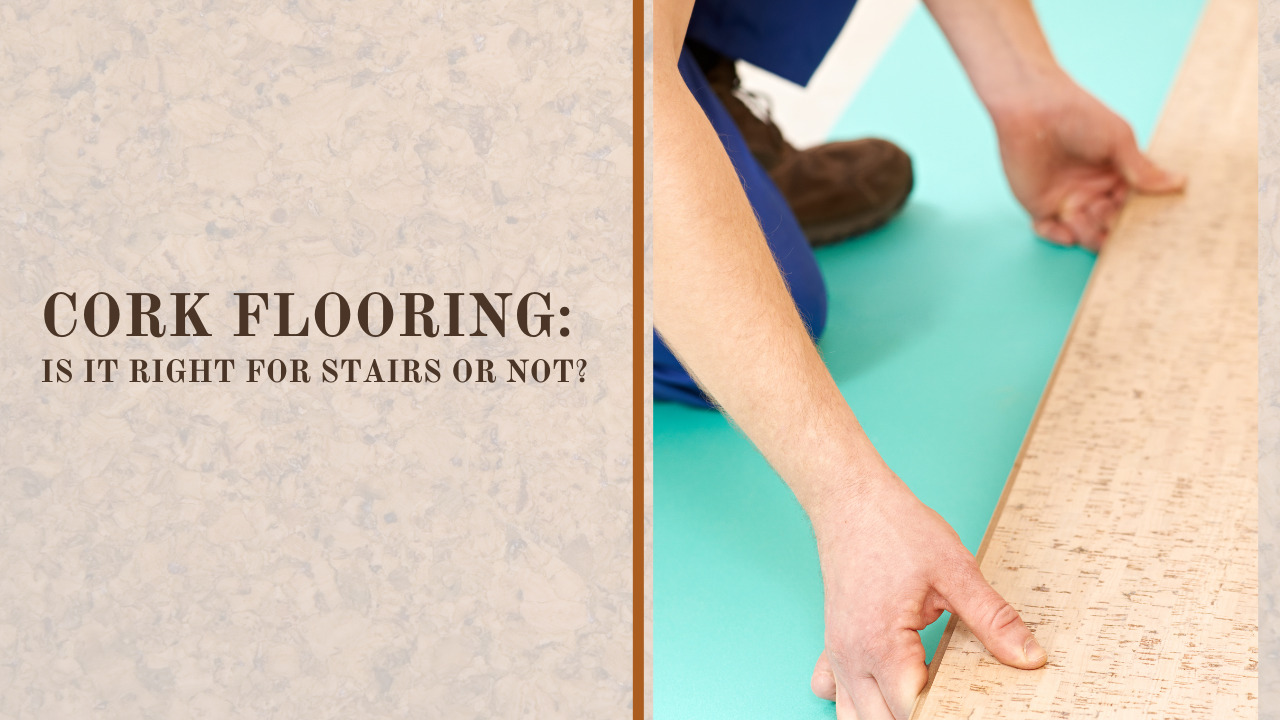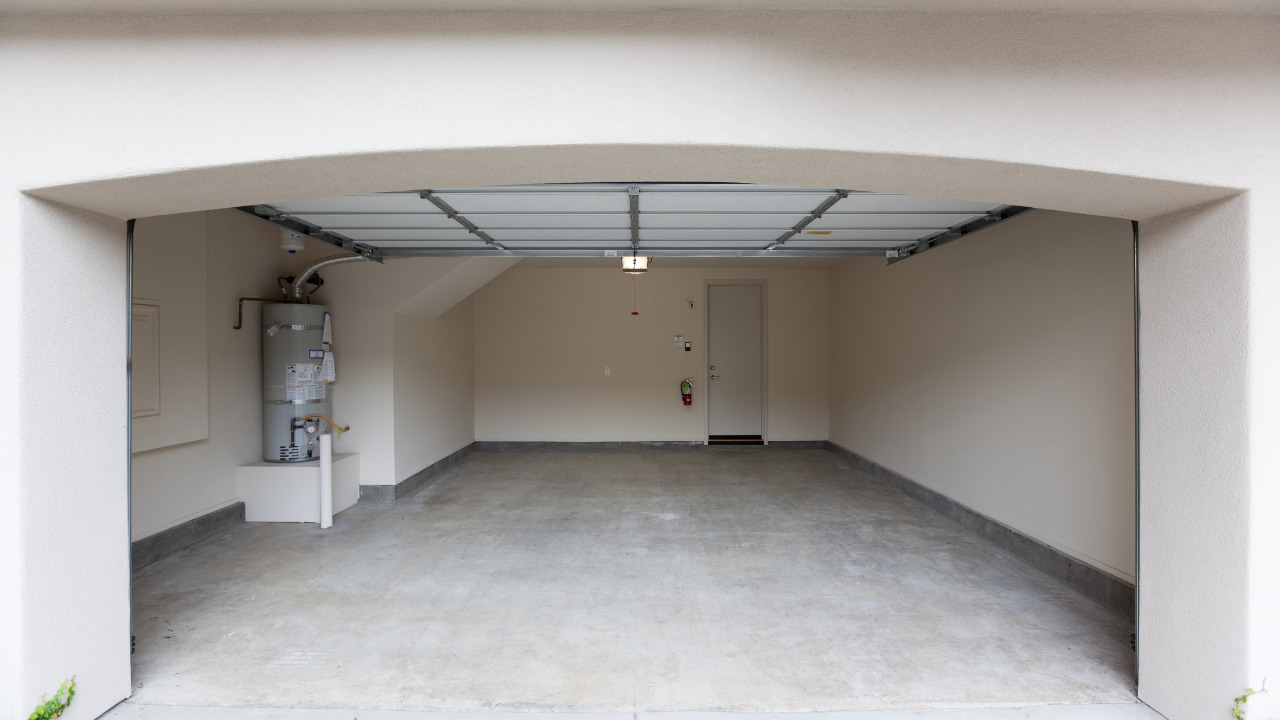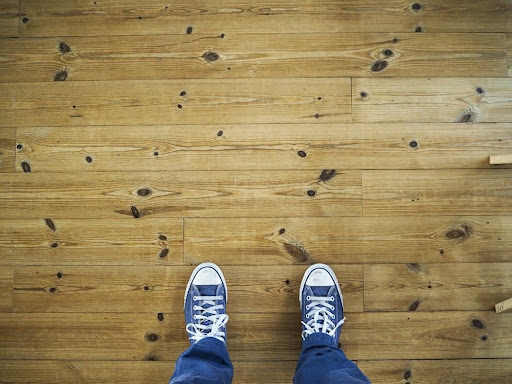Because it is a renewable resource that can be used guilt-free, cork flooring has been available for many years but has only recently become significantly more popular. Choose glue-down cork tiles or click-together cork planks for a floating floor if you’re one of the many DIY-savvy homeowners who can install cork floors themselves.
We assume you have a valid reason for researching the positives and negatives of cork flooring. The good news is that cork flooring might solve your issues, whatever they may be. We’ll cover every detail you require to understand the benefits and drawbacks of cork flooring.
Table of Contents
Cork Flooring: An Overview
In cork oak tree plantations, cork is made from the bark, which is periodically removed from the living trees. Therefore, cork is a wholly natural and readily replenishable material. There are certainly numerous benefits to cork flooring, and because it is so fashionable, cork has now practically become a standard in homes.
However, this flooring is less resistant to damage than some other types of flooring and is not as strong. To make an educated choice about the use of cork in a particular area, it is crucial to comprehend the fundamental qualities of the material.
What Would Be The Maintenance Pattern Of Cork Flooring?
Cork flooring is easy to maintain when placed properly and covered in several coats of a high-quality sealant. Regular sweeping or vacuuming is necessary, along with intermittent damp mopping to eliminate dust and dirt.
However, spills must be cleaned up quickly to avoid stains. Periodically, the seal coat should be refreshed. Cork flooring can deform and become discolored, despite the best efforts of sealers. High humidity can make cork curl or puff, making tiles or planks pop out or buckle.
A cork floor may become discolored and have a different color from the surrounding regions if direct sunlight falls on it all day. This can be avoided by covering windows with drapes or blinds, but it will demand ongoing attention and caution.
Advantages Of Cork Flooring
Versatility
Old-style cork flooring has a warm, organic appearance that complements places with a relaxed, casual style the best. However, more recent production methods have produced cork flooring closely mimics hardwood, marble, or even concrete.
If it is adequately sealed, cork flooring may be utilized practically anywhere. Like vinyl tiles, a trained installer may provide lasting effects by combining various colors to create unique designs.
Laminated planks are a more recent variation of cork flooring that consists of a bottom layer of compressed cork, a core of MDF or high-density fibreboard, and a top layer of premium cork.
Easy To Install
Standard cork flooring comes in many shapes, including floor tiles and planks. Cork floors can maintain their lovely appearance after being polyurethane sealed. To remove dust, use a standard vacuum, and to remove tough stains, use a damp mop.
A Comfortable Flooring Option
Cork flooring is inherently antimicrobial, hypoallergenic, and mildew-resistant. Cork is an excellent flooring option since it is cozy to stand and walk on for extended periods.
Cork flooring is nice to your body and incredibly quiet, thanks to those minuscule air bubbles. Your joints will appreciate the cork’s hard but spongy texture. Cork is a wise choice because its extra support has been shown to reduce back and joint pain.
For people who are elderly or disabled and may be more vulnerable to injury from falls, cork flooring serves as an additional safety measure.
An Environment-Friendly Flooring
Because cork comes from the cork oak tree, whose bark can be repeatedly collected sustainably, it is an environmentally benign type of wood flooring. Conversely, it may take decades for hardwood trees to attain maturity. Once they are felled, it’s over. There isn’t ongoing harvesting.
In essence, this makes cork an ultra-green and sustainable building material. Even quickly developing softwood flooring materials like pine can’t compare to cork in terms of sustainability.
Disadvantages Of Cork Flooring
Scratchable
Cork flooring is particularly susceptible to scratches from puppy nails. Pets will invariably harm a cork floor, but keeping their nails short can help.
Very heavy furniture or appliances may occasionally leave lasting divots on the surface. You can prevent the cork flooring from getting scratched by putting some rugs or carpets, especially in a heavy-traffic area.
Discolouration Under Sunlight
The propensity for sun damage is one of the most prevalent drawbacks of cork flooring. Cork can yellow and fade over time if exposed to direct sunlight. Cork might not be the greatest option for sunroom flooring as a result.
However, by simply choosing products with UV-resistant coatings, this particular drawback of cork flooring can be easily avoided. If you don’t, the room’s rearranging may result in a patchwork of ghostly furniture.
Conclusion
Budget is typically the deciding factor in the end. One of those features that can be removed from the project till you have more money is stairs. It is preferable to be sure of your choice and give it some thought.
Above all, cork is an excellent alternative for flooring in your home if you want a cozy, lovely, economical, and environmentally friendly material for your floor. To match the interior design of your home, you have a variety of designs to pick from, in addition to natural cork.





